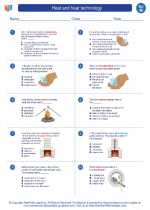Biological Anthropology
Biological anthropology, also known as physical anthropology, is a scientific discipline that studies the biological and behavioral aspects of human beings, as well as the non-human primates. It encompasses a wide range of topics including human evolution, genetics, forensic anthropology, and the study of the biological variations among contemporary human populations.
Key Concepts in Biological Anthropology
- Human Evolution: The study of the origins and development of the human species, including the fossil evidence, genetic studies, and the behavior of early human populations.
- Primatology: The study of non-human primates, including their behavior, anatomy, and genetics. This field provides important insights into the behavior and biology of our closest relatives.
- Genetics: The study of inherited traits and variation in human populations, as well as the genetic basis of evolutionary change and adaptation.
- Forensic Anthropology: The application of anthropological techniques to legal cases, particularly in the identification of human remains and determination of cause of death.
- Biological Variation: The study of human biological diversity, including the causes and implications of variations in traits such as skin color, blood type, and body size.
Study Guide for Biological Anthropology
To succeed in biological anthropology, it is important to have a strong foundation in biology, genetics, and anthropology. Here are some key areas to focus on:
1. Evolutionary Theory
Understand the principles of natural selection, genetic drift, and other mechanisms of evolutionary change. Be able to apply these concepts to the study of human evolution and adaptation.
2. Genetics and Human Variation
Learn about the basics of human genetics, including inheritance patterns, DNA structure, and the role of genetics in human variation. Understand how genetic variation is studied in human populations and how it relates to evolutionary processes.
3. Primate Biology and Behavior
Study the anatomy, behavior, and social organization of non-human primates. Understand the similarities and differences between human and non-human primate biology, and how the study of primates informs our understanding of human evolution.
4. Fossil Evidence and Human Evolution
Be familiar with the major hominin fossil discoveries and their significance in understanding human evolutionary history. Understand the methods used to date and interpret fossil evidence, and the current theories about the origins of the human lineage.
5. Contemporary Human Variation
Explore the biological diversity among human populations, including variations in skeletal morphology, blood types, and genetic markers. Understand the role of environment, culture, and history in shaping human biological variation.
By mastering these key areas, you will develop a solid understanding of biological anthropology and its relevance to our understanding of human biology and evolution.
.◂Science Worksheets and Study Guides Eighth Grade. Heat and heat technology

 Worksheet/Answer key
Worksheet/Answer key
 Worksheet/Answer key
Worksheet/Answer key
 Worksheet/Answer key
Worksheet/Answer key
 Vocabulary/Answer key
Vocabulary/Answer key
